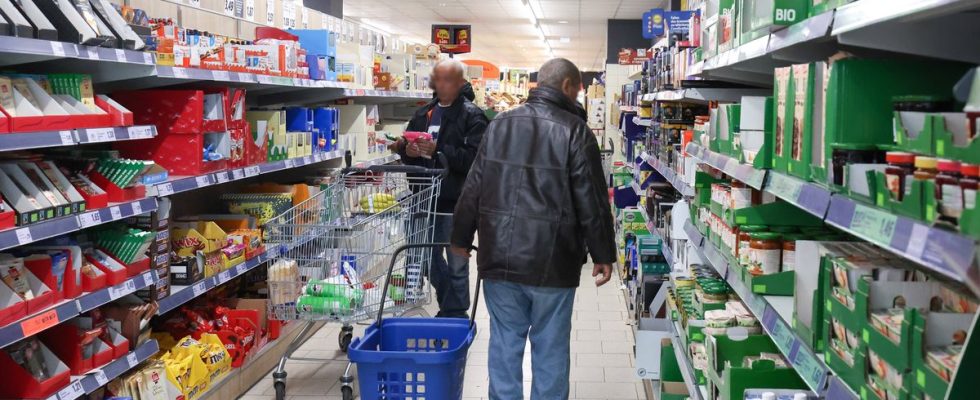Will we still have to shop in supermarkets? In addition to food inflation, consumers may face further price increases in supermarkets. Parliament adopted on Wednesday the bill of Renaissance MP Frédéric Descrozaille, which modifies on an experimental basis the commercial relations between supermarkets and their suppliers. Here are the main points.
Extend the ban on selling food at “cost price”
Since the first Agriculture and Food Law (Egalim, 2018), a provision aims to guarantee better remuneration for farmers by forcing supermarkets to make a margin of at least 10% on food products. The device is known by specialists under the name of “SRP10”, for resale threshold at a loss of +10%. Objective: to avoid that, by excessively tightening their margins, distributors are tempted to exert additional pressure on manufacturers and, consequently, on producers.
The provision on the 10% margin, which was to end in the spring, has been renewed until 2025, except for fresh fruit and vegetables. Its effectiveness has been questioned by parliamentary work but it remains crucial in the eyes of the first agricultural union, the FNSEA. According to UFC-Que Choisir, consumers are the main losers of this provision. A Senate Commission had thus estimated that promotional operations at cost price could have represented 600 million euros in potential savings each year for customers of supermarkets.
Protecting farmers’ income
The cost of agricultural raw materials (meat, milk, etc.) can no longer be negotiated for private label products owned by supermarkets (Reflets de France, Marque Repère, U brand, for example). This had already been the case since 2021 for so-called national brands (Danone, Bonduelle, Fleury Michon, etc.). The objective here is also to protect the remuneration of farmers, which was often seen as an adjustment variable in negotiations between supermarkets and manufacturers.
Limit promotions on non-food products
Another measure voted on Wednesday: the supervision of promotions on “DPH” products, drugstores, perfumery, hygiene, maintenance. Diapers, shampoo, cottons, make-up and other razors will no longer be eligible for discounts greater than 34%. However, the measure will not come into effect until March 1, 2024.
This time it is to protect the income of the manufacturers of these products. According to Ilec, which represents them, supermarkets with less latitude to negotiate on food products are inclined to catch up on this segment. According to industry experts, the measure will also weigh on the purchasing power of consumers who often buy these products during promotional operations, taking advantage of discounts well above 34%.
Give more weight to manufacturers against supermarkets
The Descrozaille bill also aimed to fill the “legal vagueness” in the event of the failure of annual commercial negotiations between supermarkets and their suppliers. Until now, if supermarkets and manufacturers did not agree on new prices, the former could still order at the previous prices even if production costs had increased in the meantime. From now on and on an experimental basis, the supplier will be able to take the initiative to interrupt deliveries to stores immediately or after a certain period.
Another favorable point for manufacturers: a cap on the amount of logistics penalties, which supermarkets inflict on them when they are not delivered on time or correctly. Supposed to avoid shortages on the shelves, they have sometimes been “diverted from their objective” until they constitute additional income for supermarkets, the government had castigated.
Better supervise European central purchasing bodies
The text also aims to better regulate the activity of central purchasing bodies that distributors have set up for several years in other European countries (Belgium, Spain, etc.) and which sometimes serve them to negotiate more advantageously, by avoiding French regulations.
With this new text, the French rules will apply to “all” of their commercial relations when “the products concerned are marketed on French territory. »

